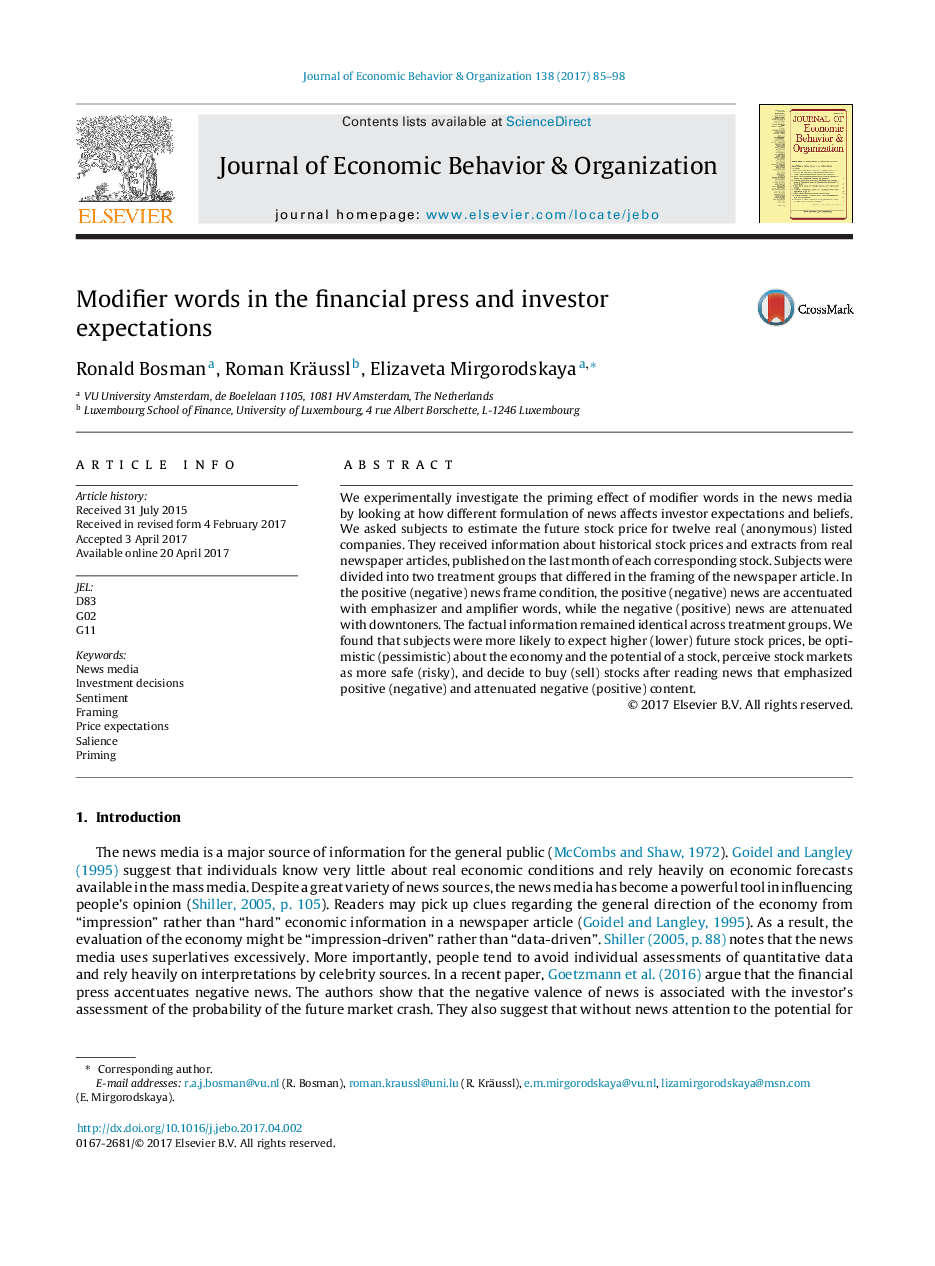| Article ID | Journal | Published Year | Pages | File Type |
|---|---|---|---|---|
| 5034645 | Journal of Economic Behavior & Organization | 2017 | 14 Pages |
Abstract
We experimentally investigate the priming effect of modifier words in the news media by looking at how different formulation of news affects investor expectations and beliefs. We asked subjects to estimate the future stock price for twelve real (anonymous) listed companies. They received information about historical stock prices and extracts from real newspaper articles, published on the last month of each corresponding stock. Subjects were divided into two treatment groups that differed in the framing of the newspaper article. In the positive (negative) news frame condition, the positive (negative) news are accentuated with emphasizer and amplifier words, while the negative (positive) news are attenuated with downtoners. The factual information remained identical across treatment groups. We found that subjects were more likely to expect higher (lower) future stock prices, be optimistic (pessimistic) about the economy and the potential of a stock, perceive stock markets as more safe (risky), and decide to buy (sell) stocks after reading news that emphasized positive (negative) and attenuated negative (positive) content.
Related Topics
Social Sciences and Humanities
Economics, Econometrics and Finance
Economics and Econometrics
Authors
Ronald Bosman, Roman Kräussl, Elizaveta Mirgorodskaya,
